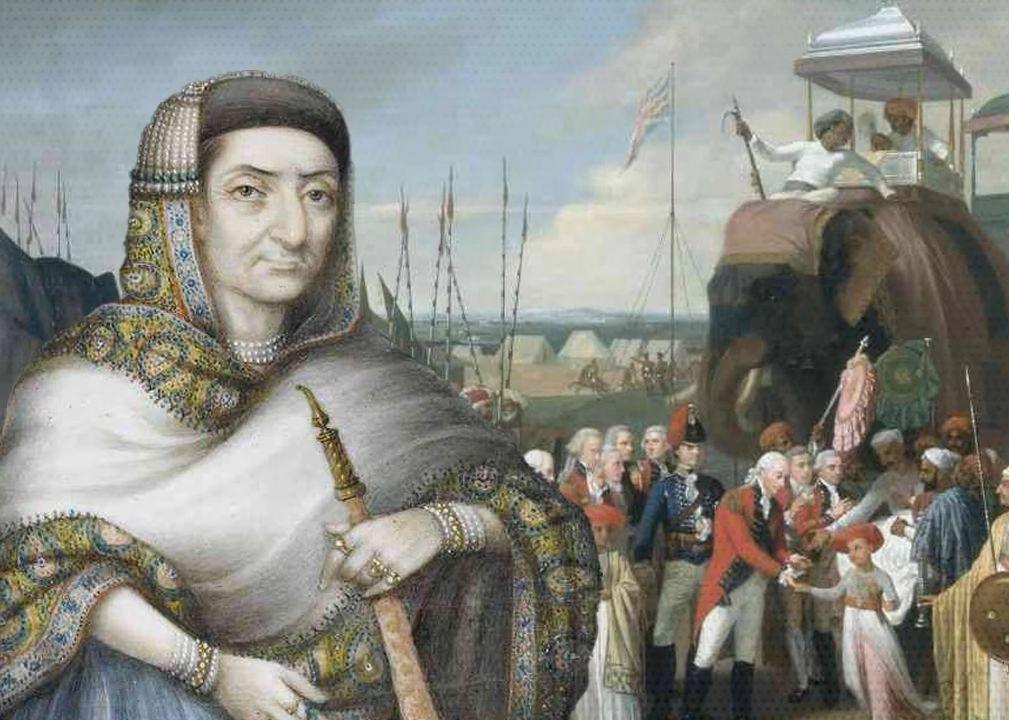
Women Entrepreneurs in Indian History: Begum Samru & Jibhabu
When we think of entrepreneurship, we often imagine modern-day success stories of women who have built empires from scratch. However, the spirit of entrepreneurship has been alive and thriving in India for centuries, with women playing a significant role in shaping the country’s history. This blog post celebrates the achievements of two pioneering women entrepreneurs, Begum Samru and Jibhabu, who defied societal norms and paved the way for future generations of women in business.
Begum Samru: A Diplomatic Ruler
Born as Imhoff, Begum Samru was a German courtesan who rose to prominence in 18th-century India. She was married to a British officer, Walter Reinhardt Sombre, who was instrumental in her conversion to Islam and her adoption of the name Samru. After her husband’s death, Begum Samru inherited his 621-square km estate in Sardhana, which was a significant chunk of land in the then British-controlled territory.
Begum Samru was a shrewd businesswoman and diplomat who knew how to navigate the complex web of alliances and rivalries between the British East India Company, the Marathas, and the Rohilla Afghans. She played a crucial role in maintaining peace and stability in the region, often acting as a mediator between warring factions. Her diplomatic skills earned her the respect and admiration of the British, who recognized her as a powerful leader in her own right.
Under her leadership, the estate of Sardhana flourished, with Begum Samru investing in agriculture, trade, and commerce. She was known for her fairness and generosity, and her estate became a beacon of prosperity and stability in the region. Begum Samru’s legacy extends beyond her business acumen and diplomatic prowess – she is remembered as a symbol of women’s empowerment and a challenge to the patriarchal norms of her time.
Jibhabu: A Negotiator Extraordinaire
Jibhabu, also known as Bai Jibhabu, was a Gujarati businesswoman who lived in the 19th century. She was a member of the Jhala Rajput clan and was married into the wealthy merchant family of the Jhala clan. When her husband died, Jibhabu was left to manage the family’s vast land revenue business, which was under threat from the East India Company’s expansionist policies.
Undaunted by the challenge, Jibhabu traveled to Bombay (now Mumbai) to negotiate with the East India Company’s officials. She was a skilled negotiator who knew how to navigate the complexities of British bureaucracy and was able to secure a favorable agreement for her family’s business. Her efforts not only saved the family’s fortune but also helped to maintain the Jhalas’ reputation as one of the most respected business families in Gujarat.
Jibhabu’s legacy extends beyond her business acumen – she is remembered as a symbol of women’s empowerment and a challenge to the patriarchal norms of her time. Her story is a testament to the enduring power of women’s entrepreneurship and leadership in shaping India’s history.
Lessons from the Past
The stories of Begum Samru and Jibhabu offer valuable lessons for modern-day women entrepreneurs. These women defied societal norms and conventions to achieve success, demonstrating that with determination and strategic leadership, women can overcome even the most daunting challenges.
Their stories also highlight the importance of diplomacy, negotiation, and strategic thinking in business. Begum Samru’s ability to navigate the complex web of alliances and rivalries in 18th-century India is a testament to the power of diplomacy and negotiation in achieving success. Similarly, Jibhabu’s ability to negotiate with the East India Company’s officials demonstrates the importance of strategic thinking and planning in business.
Finally, the stories of Begum Samru and Jibhabu serve as a reminder of the enduring power of women’s entrepreneurship and leadership in shaping India’s history. These women’s achievements are a testament to the fact that women have always played a significant role in shaping the country’s business landscape, and their legacies continue to inspire future generations of women entrepreneurs.
Conclusion
Begum Samru and Jibhabu are two pioneering women entrepreneurs who left an indelible mark on Indian history. Their stories offer valuable lessons for modern-day women entrepreneurs, highlighting the importance of diplomacy, negotiation, and strategic thinking in business. These women’s achievements are a testament to the enduring power of women’s entrepreneurship and leadership in shaping India’s history, and their legacies continue to inspire future generations of women entrepreneurs.
Source:
https://ascendants.in/business-stories/pioneering-women-entrepreneurs-history/



